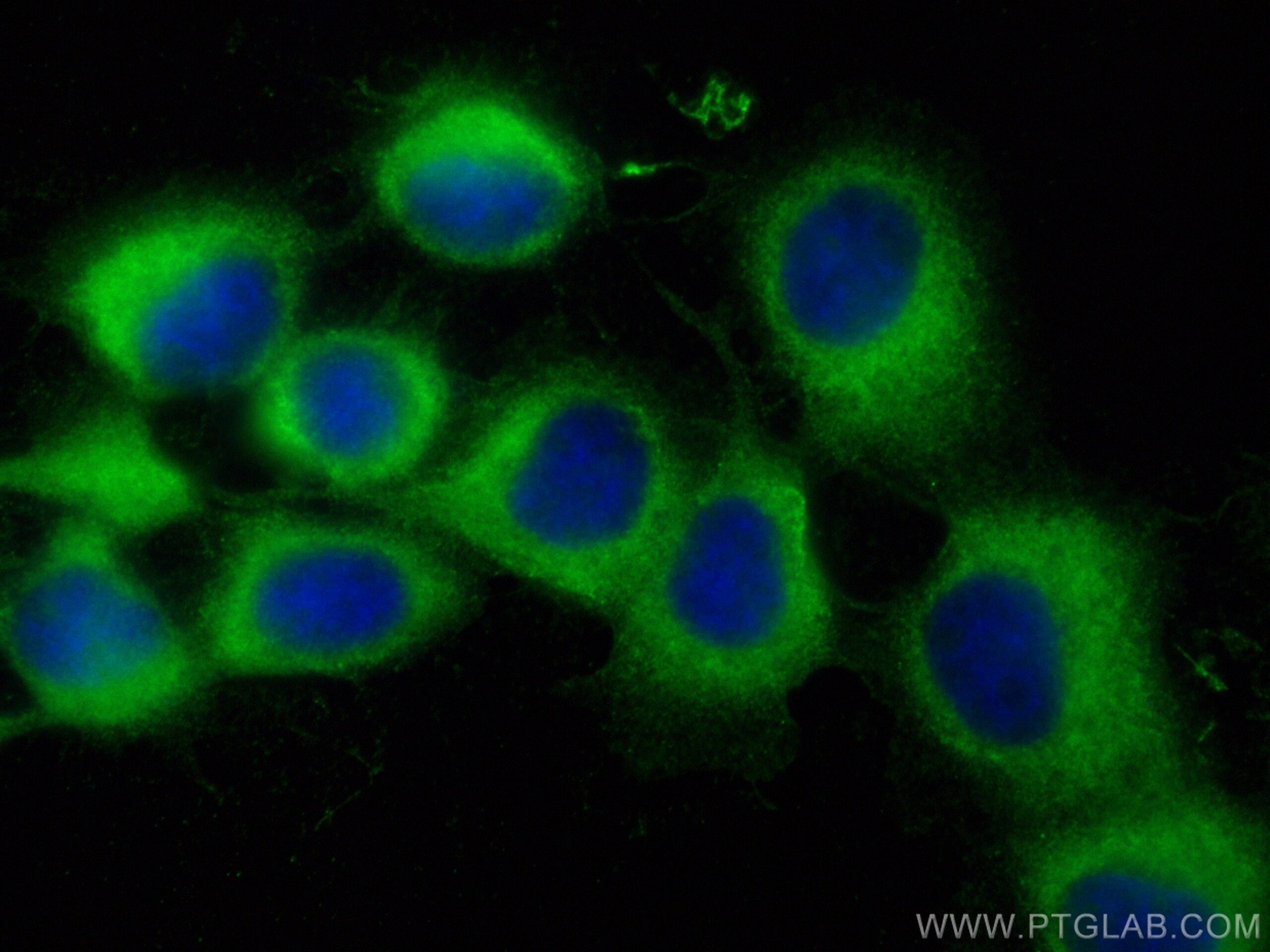Tested Applications
| Positive IF/ICC detected in | A431 cells |
Recommended dilution
| Application | Dilution |
|---|---|
| Immunofluorescence (IF)/ICC | IF/ICC : 1:50-1:500 |
| It is recommended that this reagent should be titrated in each testing system to obtain optimal results. | |
| Sample-dependent, Check data in validation data gallery. | |
Product Information
CL488-12917 targets PLS3 in IF/ICC applications and shows reactivity with human, mouse, rat samples.
| Tested Reactivity | human, mouse, rat |
| Host / Isotype | Rabbit / IgG |
| Class | Polyclonal |
| Type | Antibody |
| Immunogen | PLS3 fusion protein Ag3574 Predict reactive species |
| Full Name | plastin 3 (T isoform) |
| Calculated Molecular Weight | 630 aa, 71 kDa |
| Observed Molecular Weight | 68 kDa |
| GenBank Accession Number | BC039049 |
| Gene Symbol | PLS3 |
| Gene ID (NCBI) | 5358 |
| RRID | AB_3672554 |
| Conjugate | CoraLite® Plus 488 Fluorescent Dye |
| Excitation/Emission Maxima Wavelengths | 493 nm / 522 nm |
| Form | Liquid |
| Purification Method | Antigen affinity purification |
| UNIPROT ID | P13797 |
| Storage Buffer | PBS with 50% glycerol, 0.05% Proclin300, 0.5% BSA , pH 7.3 |
| Storage Conditions | Store at -20°C. Avoid exposure to light. Stable for one year after shipment. Aliquoting is unnecessary for -20oC storage. |
Background Information
PLS3, also named T-plastin and Plastin-3, is an actin-bundling protein found in intestinal microvilli, hair cell stereocilia, and fibroblast filopodia. It plays an important role in leukocyte function. L-plastin plays an important role in leukocyte function, and T-plastin is possibly involved in DNA repair. Both T- and L-plastin are implicated in several diseases, and L-plastin is considered to be a valuable marker for cancer (PMID: 15960882).
Protocols
| Product Specific Protocols | |
|---|---|
| IF protocol for CL Plus 488 PLS3 antibody CL488-12917 | Download protocol |
| Standard Protocols | |
|---|---|
| Click here to view our Standard Protocols |



